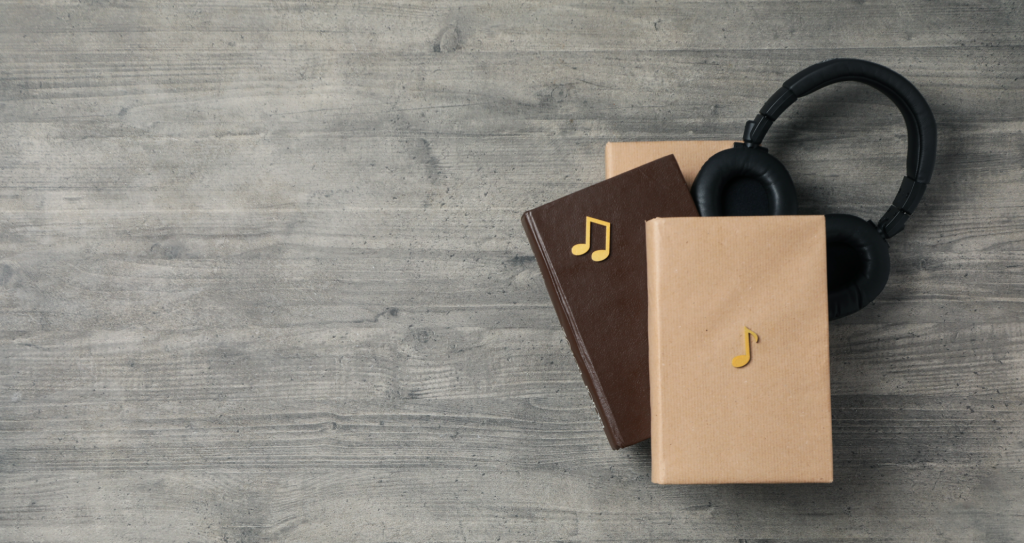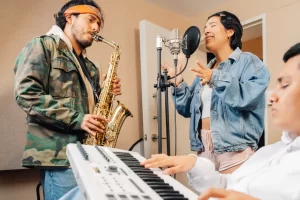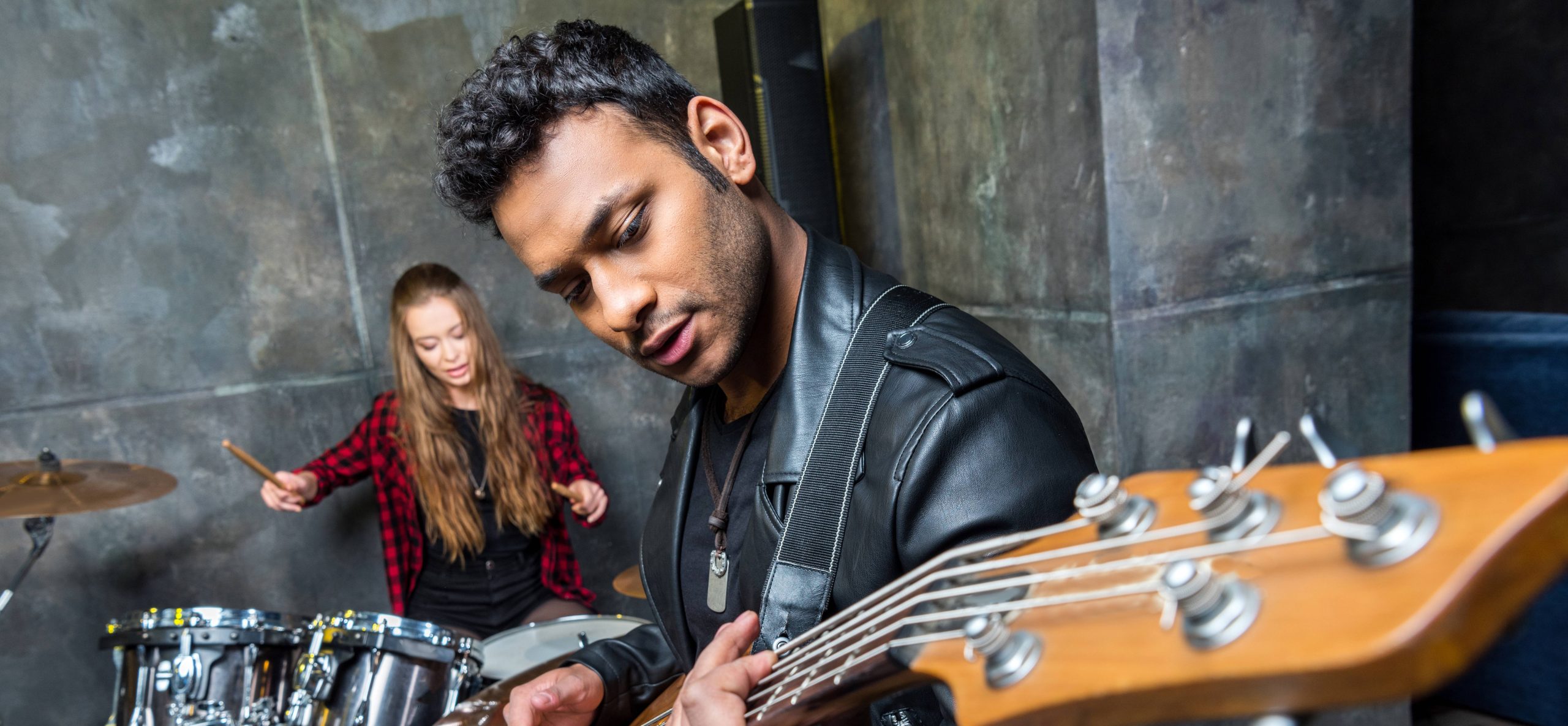The realms of music and literature have long been intertwined, each a profound medium for storytelling and emotional expression. But what happens when the lyricism of songs crosses into the pages of a book? This fascinating fusion gives rise to a special breed of artist: the musician-author. These talented individuals bridge the gap between melodies and words, offering fans and readers alike a deeper dive into their creative minds.
This article embarks on an exploratory journey into the lives and works of musicians who have extended their artistic expression beyond the recording studio and onto the printed page. These artists, known for their compelling lyrics and captivating tunes, have ventured into the literary world, bringing with them a unique blend of rhythmic storytelling and emotional depth that only a musician’s perspective can offer.
In this post, we will delve into the synergy between songwriting and book writing, shedding light on how these musicians translate their auditory art into written narratives. From pioneers who first merged these worlds to contemporary artists making their mark in the literary field, we explore the diverse ways these creatives have expanded their artistic horizons, impacting both the literary and music industries. Join us as we uncover the stories, challenges, and triumphs of musicians who have found a parallel passion in penning literature.
The Synergy of Words and Music
The transition from lyrics to literature is a natural progression for many musicians. At the core, both songwriting and book writing are forms of storytelling, weaving narratives that capture the human experience. This section delves into the intrinsic link between these two artistic expressions and the transferable skills that enable musicians to excel in the literary world.
Songwriting is an art form that combines melody with the power of words to evoke emotions and convey messages. This blend of rhythm and narrative is akin to the essence of literature. Musicians, accustomed to expressing themselves through lyrics, often find that their skills in crafting a song’s narrative translate seamlessly into writing books. The key elements of storytelling – such as theme development, character building, and setting a tone – are integral to both songs and books.
Moreover, the rhythm and pacing inherent in music can enrich a written narrative, bringing a unique flow to the prose. Musicians often have a keen sense of timing and emotional pacing, skills that are invaluable in creating compelling literature. This rhythmic intuition helps in structuring a book’s narrative, ensuring that the story resonates with readers just as a song resonates with listeners.
In this exploration, we see how the emotional depth and narrative structure familiar to musicians provide a solid foundation for venturing into literature. The transition is not just about changing mediums; it’s about expanding the canvas of their creativity, allowing them to express their stories in a new, yet intimately familiar way.
Pioneers of Both Worlds
The journey of musicians turning authors is not a recent phenomenon; it has historical roots with several pioneers leading the way. These early musician-authors set the stage for blending lyrical prowess with literary ambition, showcasing their versatility across diverse artistic realms.
One of the notable early examples is Bob Dylan, a Nobel laureate in Literature, whose work transcends music and enters the realm of poetic and narrative art. Dylan’s foray into literature includes his experimental prose poetry book “Tarantula” and the critically acclaimed “Chronicles: Volume One,” a memoir that offers a window into his artistic process and the evolution of his music career. His literary work reflects the same depth and thought-provoking content as his songs, resonating with a wide audience.
Another pioneer is Leonard Cohen, renowned for his profound lyrics and deep, emotive voice. Cohen was a published poet and novelist before he became a celebrated musician. His books, like “Beautiful Losers” and “Let Us Compare Mythologies,” exhibit a profound exploration of spirituality, love, and human complexity, themes that are also prevalent in his music.
These early musician-authors blazed a trail, proving that the art of storytelling could be effectively expressed both through melodies and the written word. They not only succeeded in their musical careers but also earned recognition and respect in the literary world, inspiring future generations of musicians to explore their narrative voice in literature. Their legacy is a testament to the boundless nature of creative expression, crossing boundaries and merging worlds with seamless artistry.
Contemporary Musicians-Turned-Authors
The trend of musicians branching into the literary world has continued with a new wave of contemporary artists who bring fresh perspectives and diverse voices to the bookshelves. These modern musician-authors enrich the literary landscape with their unique experiences and storytelling styles, often reflecting the themes and nuances of their musical works.
A prominent figure in this category is Patti Smith, a punk rock icon known for her profound lyrical compositions. Her memoir, “Just Kids,” which chronicles her journey through the New York City art scene and her relationship with photographer Robert Mapplethorpe, received critical acclaim and a National Book Award. Smith’s prose carries the same raw emotion and poetic grace as her music, offering an introspective look into her life and the cultural movements she has been a part of.
Nick Cave, the Australian musician known for his baritone voice and intense performances, is another example. He has penned several novels, including “And the Ass Saw the Angel,” a vivid exploration of themes like desolation and redemption, echoing the gothic and emotional intensity of his songs. Cave’s work in literature complements his musical expression, providing another dimension to his artistic persona.
Then there’s the indie rock musician Jeff Tweedy of Wilco, who ventured into the literary world with his memoir, “Let’s Go (So We Can Get Back).” In this book, Tweedy shares insights into his songwriting process and personal struggles, offering a candid and humorous perspective that deepens the understanding of his music.
These contemporary musicians-turned-authors do not merely write about their experiences in the music industry; they delve into broader themes of life, identity, and the human condition. Their books are not just extensions of their music but standalone works that showcase their versatility and depth as artists. By straddling the worlds of music and literature, these artists offer their audiences a more comprehensive view of their creative vision, demonstrating that the power of storytelling can resonate across different mediums.
Genre Exploration
The literary endeavors of musician-authors span a diverse array of genres, showcasing their versatility and depth as storytellers. This genre exploration allows them to extend their artistic expression beyond the realm of music, engaging with readers through different narrative forms.
Many musician-authors gravitate towards memoirs and autobiographies, providing fans with intimate insights into their lives and careers. These works often offer behind-the-scenes glimpses into the music industry, revealing the personal journeys and challenges faced by the artists. For instance, Bruce Springsteen’s autobiography, “Born to Run,” delves into his upbringing in New Jersey, his rise to fame, and his battles with depression, presenting a candid and heartfelt narrative that complements his songwriting.
Fiction is another popular genre among musician-authors, allowing them to weave imaginative stories that may parallel the themes present in their music. For example, Josh Ritter, a renowned singer-songwriter, exhibits his narrative prowess in his novel “Bright’s Passage,” which tells a poignant tale set in post-World War I America. Ritter’s lyrical skills translate into a rich storytelling style that captivates readers.
Poetry is a natural extension for many songwriters due to its shared emphasis on rhythm and emotive language. Artists like Jewel have published collections of poetry, such as “A Night Without Armor,” where her introspective and evocative poems resonate with the same authenticity and vulnerability found in her lyrics.
Exploring a range of genres, these musician-authors demonstrate their multifaceted talents, creating literary works that are not only extensions of their musical artistry but also standalone contributions to the literary world. Their foray into different genres enriches the reading experience, offering varied and profound perspectives on life, creativity, and expression.
Impact on Fans and Readers
The literary ventures of musicians have a significant impact on both their fans and the broader reading community. These forays into writing offer fans a deeper, more nuanced understanding of the artists they admire, while also attracting new audiences who may be more attuned to the written word.
For fans, the books written by their favorite musicians provide an unparalleled glimpse into the artists’ minds and lives. These works often reveal personal stories, inspirations, and struggles that are not apparent in their music alone. For example, when a renowned singer shares the journey behind their songs through a memoir, it can deepen fans’ connection to the music, making each lyric and melody more meaningful. Fans gain a more comprehensive view of the artist, appreciating their work on a different, often more intimate level.
Furthermore, these literary works can bridge the gap between music lovers and book enthusiasts. Readers who may not be familiar with an artist’s music might discover a new appreciation for their work after reading their books. This crossover appeal broadens the artist’s reach, introducing their artistry to a wider audience and fostering a diverse community of fans and readers.
The impact also extends to how fans perceive the intersection of music and literature. Seeing their favorite musicians succeed as authors can inspire fans to explore their creative talents, breaking down barriers between different art forms. It encourages a culture where art is not confined to a single medium, but is celebrated for its ability to transcend and meld various forms of expression.
The journey of musicians into the literary world enriches the cultural landscape, offering multifaceted experiences to both fans and readers. It highlights the versatility of artists and underscores the universality of storytelling, regardless of the medium.
Challenges and Triumphs
The transition from music to literature is not without its challenges, yet many musician-authors have navigated these hurdles to achieve significant triumphs in their literary careers. These challenges often stem from industry expectations, audience reception, and the inherent differences between the two art forms.
One major challenge is the skepticism from critics and readers, who may question a musician’s ability to write compelling literature. Musicians entering the literary world often face the daunting task of proving their worth beyond their established musical fame. They must demonstrate that their talent in songwriting can translate effectively into writing prose or poetry. This skepticism can be a significant hurdle, especially for those venturing into genres that differ vastly from their musical style.
Another challenge is the balancing act between two demanding careers. Writing a book requires a different set of skills and a significant amount of time and focus, which can be challenging to manage alongside a music career. This juggling act can be taxing, with the need to switch creative mindsets and meet the expectations of different audiences.
Despite these challenges, many musician-authors have triumphed, garnering critical acclaim and commercial success. These successes are not only measured in book sales or literary awards but also in the ability to reach new audiences and create a lasting impact. For instance, when a musician’s book is adapted into a film or inspires a cultural discussion, it signifies a triumph that transcends traditional measures of success.
Moreover, the triumphs of musician-authors often inspire other artists to explore their own literary talents, contributing to a richer and more diverse cultural landscape. These successes demonstrate the boundless potential of creative expression, encouraging a fusion of art forms and the breaking of conventional boundaries.
While the path from music to literature is fraught with challenges, the successes achieved by many musician-authors are a testament to their artistic versatility and the universal appeal of storytelling. Their journeys inspire admiration and encourage a deeper appreciation for the art of narrative, in whatever form it may take.
The Future of Musician-Authors
The trend of musicians turning to literature is not merely a fleeting phenomenon but a burgeoning movement that hints at an exciting future for the fusion of these art forms. As the boundaries between different modes of creative expression continue to blur, the potential for musician-authors is vast and filled with possibilities.
Technological advancements and the rise of digital platforms will play a significant role in shaping this future. The ease of self-publishing and the power of social media for promotion provide musicians with unprecedented opportunities to venture into writing and share their work with a global audience. This democratization of publishing means that more musicians can explore literary pursuits without the traditional gatekeepers of the publishing industry.
The increasing collaboration between various art forms presents another avenue for growth. We can expect to see more multidisciplinary projects where music and literature intertwine, such as audiobooks with musical accompaniments, multimedia storytelling experiences, or even interactive digital books where music plays a crucial role in the narrative.
Moreover, the evolving landscape of the music industry, with its shifting focus towards storytelling and authenticity, suggests that more musicians might seek to express themselves through books. Literature offers a different canvas for artists to convey their stories, thoughts, and visions in a manner that complements their musical creations.
The future might also see more literary works influencing the music industry. Novels, poems, and memoirs written by musicians could inspire albums, songs, and even new musical genres, creating a reciprocal relationship between the two crafts.
As this trend continues to evolve, musician-authors are poised to enrich both the literary and music worlds, breaking down barriers and expanding the horizons of what is possible in art. Their contributions will likely encourage a new generation of artists who see no boundaries between their musical and literary aspirations, leading to a more integrated and diverse artistic landscape. The future of musician-authors is not just about musicians writing books; it’s about the continual fusion of sound and text in innovative, compelling ways.
To Sum It Up
The journey from lyrics to literature represents a fascinating intersection of artistic paths, where musicians bring the depth of their melodies into the realm of written words. This crossover showcases the versatility of artists who are not confined to a single form of expression but are driven by a deeper urge to tell stories, whether through songs or prose.
The emergence of musician-authors is a testament to the boundless nature of creativity. It reflects an era where art is not pigeonholed but celebrated for its fluidity and interconnectedness. These artists, with their dual talents, enrich our cultural landscape, offering a blend of lyrical and literary artistry that resonates on multiple levels.
As we have seen, the transition from music to literature is filled with both challenges and triumphs. While navigating a new industry and audience expectations, these musicians have successfully expanded their artistic horizons, gaining recognition and respect in the literary world. Their success paves the way for future generations of artists, encouraging a melding of musical and literary creativity.
Looking ahead, the future of musician-authors is bright and promising, poised to redefine the boundaries between music and literature. The continued fusion of these forms will undoubtedly lead to innovative artistic expressions, deepening the connection between the artist and audience in both the auditory and visual realms.
The stories of musicians turning into authors are not just about career shifts; they represent a deeper exploration of art and a celebration of the multifaceted nature of creative expression. This phenomenon reminds us that the power of storytelling transcends mediums, resonating with audiences in myriad, profound ways.




